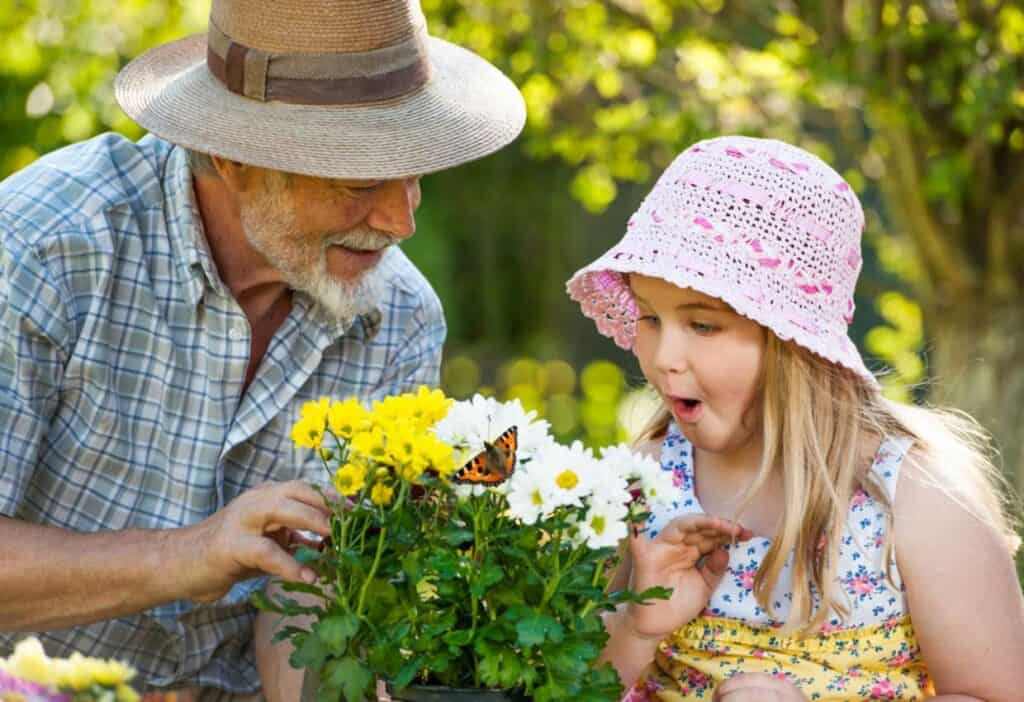Pollinator Week is coming up from June 17 to June 24, 2024, and it’s the perfect time for families to engage in fun and educational activities. Here are seven hands-on ideas to help you celebrate Pollinator Week and learn about the vital role pollinators play in the ecosystem.

What to know about Pollinator Week
Pollinator Week is an annual event in the United States that highlights the importance of pollinators such as bees, butterflies, birds and bats. These creatures are crucial for pollinating many plants that produce fruits, vegetables and nuts. Pollinator Week aims to raise awareness and promote actions to protect and support these essential species.
Why we need pollinators
According to a National Institute of Food and Agriculture report, pollinators play a crucial role in reproducing over 75% of flowering plants and nearly 35% of global food crops. They help produce food and maintain the health of ecosystems.
Without pollinators, the world’s food supply and biodiversity would suffer greatly. Pollinator Week reminds us of the urgent need to protect these invaluable creatures and their habitats.
Plenty of fun for Pollinator Week
According to Reed Lievers, Partnerships and Development Coordinator at Pollinator Partnership, Pollinator Week is the perfect time to get outside, get dirty and grow plants for pollinators. “The best thing we can do to help pollinators like bees, butterflies and hummingbirds is to create more habitat for them, preferably with native plants,” he says.
There are many ways to celebrate Pollinator Week. Here are seven engaging and educational activities for the whole family.
Visit your local butterfly garden
Take a trip to a nearby butterfly garden. These gardens provide a habitat for various butterfly species and offer a close-up view of these beautiful pollinators.
Many butterfly gardens, like Florida’s Arden Farm and Gardens, offer educational programs and tours. “We’ve carefully handpicked native plants to grow to attract lovely pollinators like bees and butterflies,” says Charmaine Peters, Farm Director at Arden. These activities can teach your family about butterflies’ life cycles and habits.
Start a pollinator garden
Plant a garden that attracts and supports pollinators. Whether you plant in your backyard or a community garden, choose native flowers, shrubs and trees that bloom at different times of the year.
This selection provides a continuous food source for pollinators. Reid suggests visiting the guides section at pollinator.org to figure out which plants will be most beneficial for your local pollinators.
When planting your pollinator garden, use organic gardening practices to avoid harming pollinators with pesticides. Provide a water source such as a shallow dish with stones from which pollinators can drink. And remember to include plants like milkweed for butterflies and sunflowers for bees.
Learn about bees
Bees are among the most important pollinators. Learning about them can be both fun and educational.
Visit a local apiary or beekeeper to see how bees live and work. Or watch documentaries and read books about bees and their role in pollination. For a hands-on pollination education activity, create a bee hotel to provide nesting sites for solitary bees.
Host a pollinator craft day
If your family includes elementary-school-aged children, plan a pollinator craft day.
Spend an afternoon making pollinator-themed crafts, such as pollinator-friendly DIY planters. This activity can help younger children learn about different pollinators in a creative way.
Give younger children a pack of crayons and print off free online butterfly garden coloring pages. Use construction paper and markers to make butterfly wings.
Create simple bee masks with paper plates and paint. For a more educational activity, give each child a set of fun pollinator printable activity sheets to complete.
Tweens, teens and adults can design flower pots and other DIY gardening crafts with a pollinator theme. Then plant pollinator-friendly plants in them to attract butterflies and bees.
Conduct a pollinator scavenger hunt
Organize a scavenger hunt in your backyard or a local park. Create a list of pollinators and pollinator-friendly plants for your family to find.
Begin by listing common pollinators like bees, butterflies, and hummingbirds. Remember to look for flowers such as daisies, clover and lavender. Then, reward participants with a small prize for finding the most items.
Build a birdhouse
Birds are also important pollinators. Building a birdhouse can provide a safe place to nest while encouraging them to visit your garden.
Use simple birdhouse kits, create your design or make bird feeders from recyclables. This hands-on activity is suitable for people of all ages. It is a clever way to upcycle materials that may otherwise end up in landfills.
When complete, place the birdhouse in your garden’s quiet, shaded area. Remember to keep the birdhouse clean and monitor it for any signs of pests or damage.
Participate in a citizen science project
Celebrate Pollinator Week on a community level and participate in citizen science projects that track and monitor pollinator populations. These projects provide valuable data that help scientists understand and protect pollinators.
Join programs like the Great Sunflower Project or Monarch Watch. Then, record your observations and submit them to the project’s database. Encourage friends and neighbors to participate as well.
Pollinator Week offers families an excellent opportunity to learn about and support pollinators through engaging activities. By participating in these fun and educational events, you can help ensure the survival of these crucial creatures and contribute to a healthier environment.
Sarita Harbour is a long-time business and finance writer. She created An Off Grid Life to help people become more self-reliant.